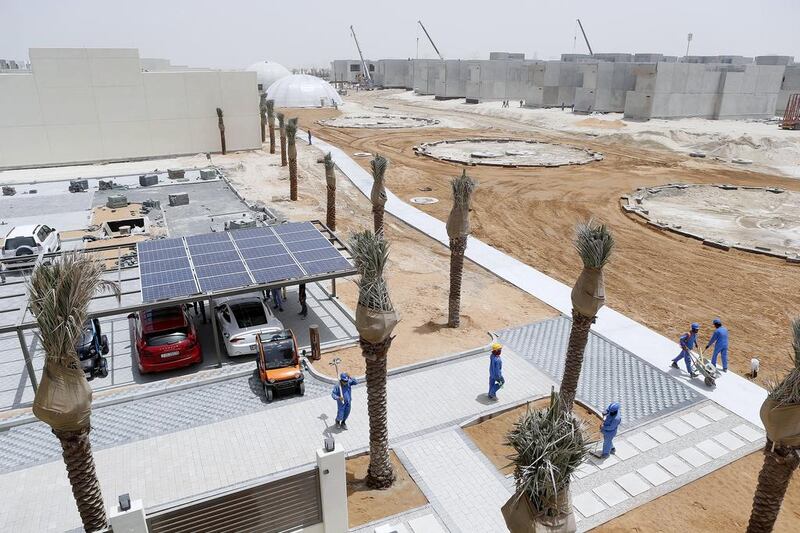The solar-energy sector is not ready to become a replacement for diesel power as the UAE Government lifts fuel subsidies next month, experts say.
Solar energy is still considered a newcomer to the country’s power scene as regulations lag.
Although Abu Dhabi and Dubai have renewable energy targets, Dubai is the only emirate to have set guidelines to allow residential and commercial users to install rooftop solar photovoltaic (PV) panels for power generation. Yet as few residents own their homes, residential rooftop solar is not applicable.
“Alternative technology, especially renewable energy with a focus on solar, was up to par with the lifting of subsidies, but we are not there yet,” said Hadi Tahboub, the vice president of the Middle East Solar Industry Association (Mesia). “There has to be a build-up of ideas and innovation to accommodate the needs of communities, business and economy to enable us to say that we’re not just cutting down on fuel emissions, but we’re continuing to transform the UAE.”
The removal of fuel subsidies, set to begin next month, will mean users pay more for items such as petrol and diesel.
Consumers previously had been given a flat rate which was well below market price while the government picked up the remaining costs.
It is anticipated that with this move, other sectors such as renewable energy, could grow quicker.
“We always wanted to make that shift from hydrocarbons to renewables, and this is an incentive,” said Waleed Isaac, managing director of Dubai-based Smart Energy Solutions (Ses). “[Adding solar energy] becomes a must for us, but I’m not sure we are ready.”
Diesel is the standard temporary power solution for the industry. Ses mainly deploys its technology to construction sites and rural areas without connection to the grid. Now efforts are under way to add more hybrid technologies to the energy portfolio. SES hybrid solutions would continue to use diesel as a main source of energy with solar power as a supplementary source.
Another power solution provider says that while investors will likely pay more attention to solar power solutions, the appetite is still not there.
“While [dropping fuel subsidies] is a nice opportunity, it’s like we’re developing the ecosystem ourselves and financiers want the full ecosystem [to invest],” said Omer Ghani, chief executive of Dubai-based solar power solution provider Qmega.
Investors must be secured before a product can reach the market, and the main challenge for the solar-power provider has been to create an entire financial system from scratch to obtain the necessary financial backing. “The systems develop when new technologies emerge,” Mr Ghani said.
Qmega’s solar units require an upfront payment with the equipment guaranteed to last for 25 years. However, to expand in the market, the company needs to offer other financial schemes, such as monthly payment installations.
Mr Ghani points to the US firm, SolarCity, which designs, installs and most importantly, finances its systems. “But it took SolarCity 10 years to develop [its portfolio],” he said. “For us to truly scale and penetrate the market, we need to have financing partners that enable us to go in and install a system and provide buyers the option to pay monthly.”
lgraves@thenational.ae
Follow The National's Business section on Twitter





